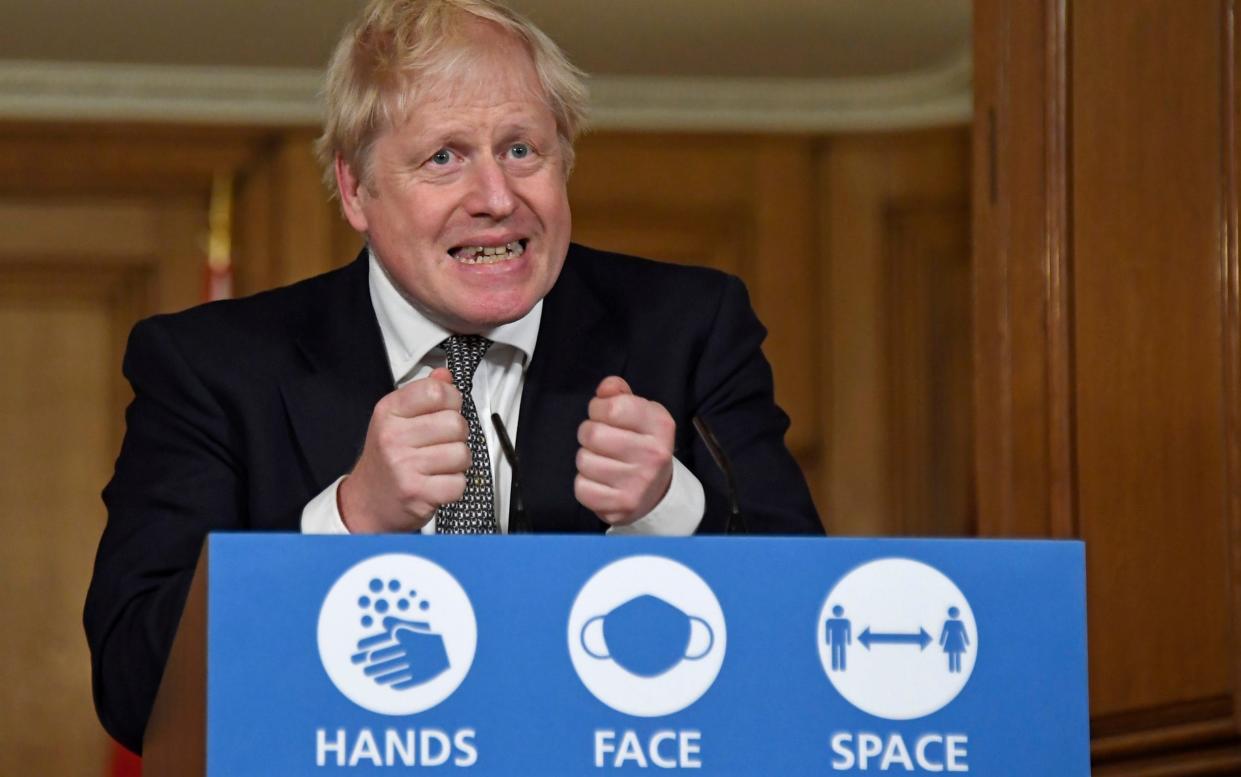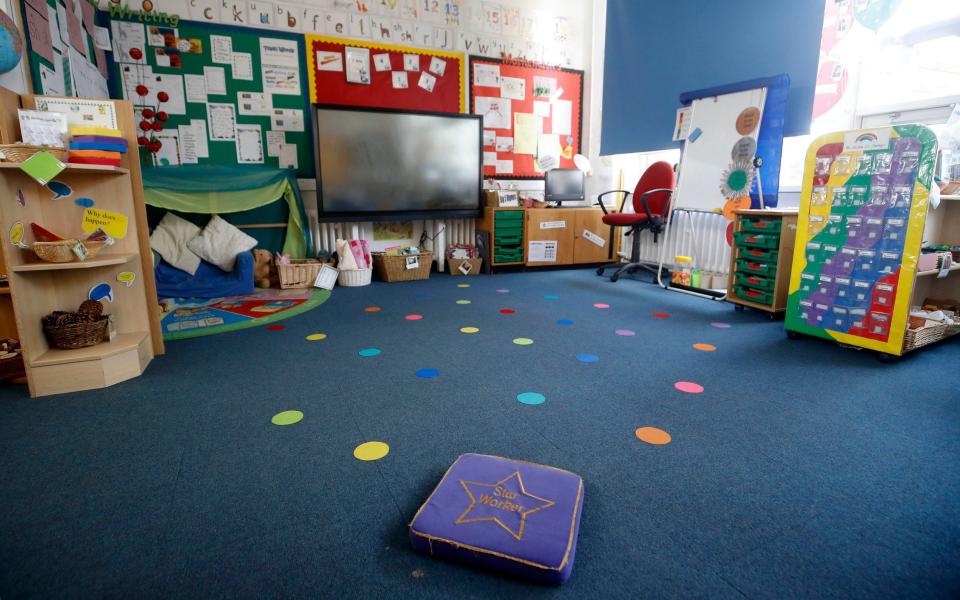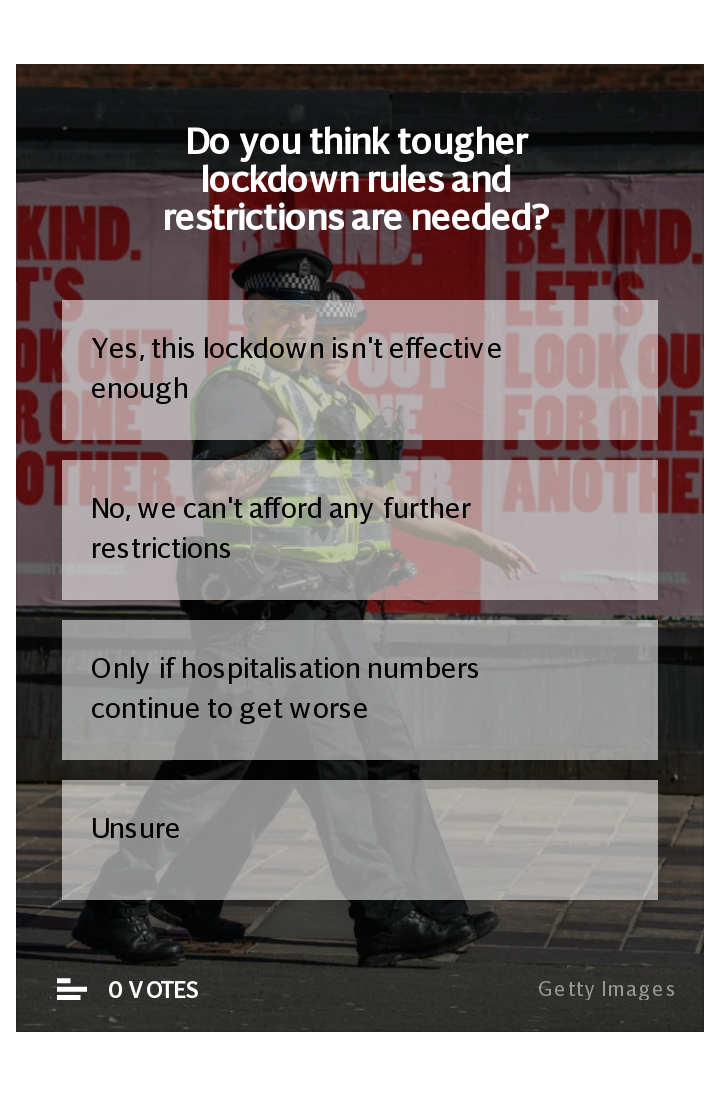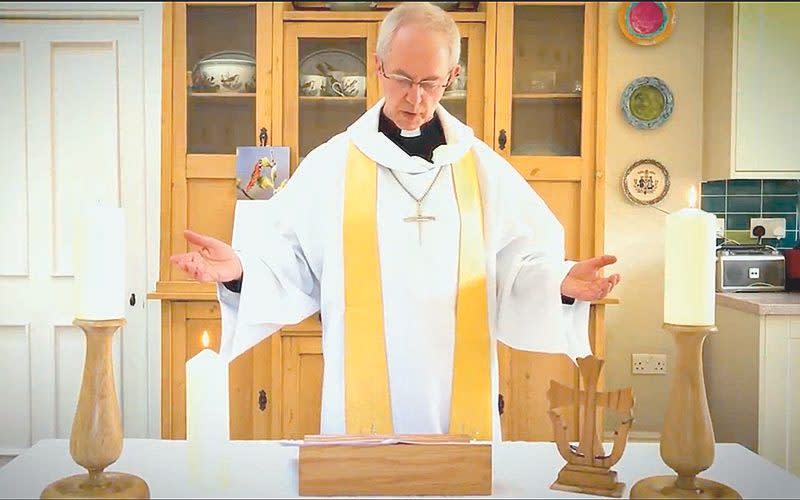The tighter rules Boris Johnson could enforce to reduce infections


Boris Johnson is facing growing pressure to toughen the lockdown rules, as scientists and MPs warn the current regime may not succeed in reducing case rates fast enough.
Prof Peter Horby, the chairman of the New and Emerging Respiratory Virus Threats Advisory Group (Nervtag), warned on Sunday the UK is in the “eye of the storm”.
While it “remains to be seen” whether the current restrictions will fulfil their objective of slashing case numbers because there is a two-week lag on the data, he stressed: “If there’s any sign that they’re not, then we’re going to have to be even stricter.”
A growing chorus of politicians, including Conservative and opposition MPs, is also urging the Government to go further.
Sir Keir Starmer warned on Sunday the rules “may not be tough enough” and former Tory health minister Dan Poulter, an obstetrics and gynaecological doctor, weighed in to say ministers need to “put in place tougher measures”.
A range of options remain open to the Government, and some are under active discussion on Whitehall.
Restrict exercise between households

Ministers are examining plans to restrict the rules on exercise, removing the provision for two people from separate households to meet outside for a walk or run, The Telegraph understands.
The rule change, if it is approved, would mean only people in the same household or support bubble could exercise outdoors together.
Concerns have arisen in Whitehall that the current exercise-related caveat to the instruction “stay at home” is being misused to facilitate socialising.
Too many people are using the provision to meet in pairs in the the park for a coffee, it is feared.
A government source told The Telegraph: “At present people are using the exercise exemption of lockdown to basically go and socialise with friends. It’s what more we can do to say, ‘Hang on, that’s probably not the best thing to do’. It may be we tighten up on things like that.”
In the first lockdown last March, the Government was stricter from the start – allowing people to exercise alone or with their own household. Support bubbles were not introduced as a concept until June.
People were also restricted to leaving the house to exercise only once a day.
Face coverings

The Government is also looking at extending the rules on wearing a mask outside the home, which could include the workplace and some outdoor settings. At present face coverings are only mandatory on public transport and in shops.
Non-compliance is punishable by fines of up to £6,400 for repeat offences. The idea of increasing the use of face coverings has been on the table for some time.
Last October, Robert Jenrick, the Housing Secretary, said face masks “have some benefit” at work and signalled the proposal would be “taken into consideration” by ministers.
It marked a stark shift in government thinking after Matt Hancock had ruled out the move three months earlier.
However, since under the current lockdown the Government has instructed anyone who can work from home to do so, this extension would affect only the small proportion of employees still attending their workplace.
The Mayor of London, Sadiq Khan, last week called on ministers to make wearing masks “mandatory outdoors when in queues, streets and other crowded spaces outside”.
Shut nurseries

The Labour Party leader, Sir Keir Starmer, has called for nurseries to be closed to stop the spread of the virus among young children.
The majority of children infected with the virus do not show any symptoms, but evidence suggests they can still catch the virus and spread it to others.
On Sunday Sir Keir told the BBC nurseries "probably should be closed".
He said: "I think there is a case for looking at nursery schools, we're talking to the scientists about that. I think people are surprised that primary schools were closed but nurseries aren't."
The Early Years Alliance, a nursery industry body, has called on the Government to explain how nurseries can be safe while primary schools are deemed too dangerous to open.
Michael Gove has said it is important for children to continue to attend so their parents can work. Unlike in the rules for schools, nurseries are not only for the children of key workers – any child can attend.
Prof Calum Semple, a scientist on the Sage committee that advises the Government, earlier this month said the plan to keep nurseries open was a “political decision”.
He suggested the effect on the transmission rate could be “tempered by restricting the nursery capacity to those essential workers”.

Abolish support bubbles
Scientists have long been sceptical about the use of support bubbles during spikes in the rate of infection in the UK. Last May Sage advised against the introduction of the bubbles, which allow the fusion of two households where one of them involves a person who lives alone.
The bubbles were eventually introduced in an attempt to reduce the detrimental mental health effects of lockdown, but the Government has not ruled out abolishing the bubbles if case numbers continue to climb.
Asked on Sunday whether ministers were considering withdrawing the legal exemption of support bubbles, Mr Hancock said: "I don't want to speculate because the most important message is not whether the Government will further strengthen the rules.”
Support bubble arrangements mean people who live alone can join another household and stay overnight in their home.
Guidance suggests people who have a support bubble should choose a household close to their home, to reduce unnecessary travel.
Ending the arrangement would make the lockdown more similar to the original measures in March last year, but could have a greater detrimental effect on peoples' mental health.
Other proposals

Other suggestions for the strengthening of lockdown have included the closure of mass worship sites. Previous analysis by Sage has suggested closing the venues could reduce the R rate by around 0.1.
However, ministers are reluctant to ban acts of collective worship again.
Asked on Friday whether the move was under consideration, Mr Gove said: “It's absolutely vital that traditions of public worship can continue and I think it’s a very important part of the life of the nation.”
Tory MP Mr Poulter, a former health minister, called for churches to close and for the Government to redefine the term “key worker”.
“We need to look at this and take some more urgent action,” he said.
A previous estimate by the Office for National Statistics suggested 10 million people are considered key workers under the current definition.
Ministers have so far resisted calls for a national curfew similar to the policy in France, where the public are banned from the streets after either 6pm or 8pm.
The Prime Minister’s official spokesman has refused to rule out using the policy in future, telling reporters: "We've always said we'll keep all measures under review and base our decisions on the latest scientific evidence."

 Yahoo News
Yahoo News 
